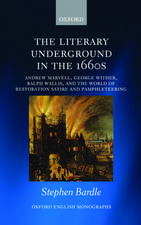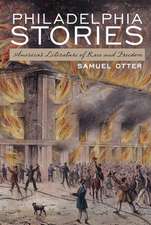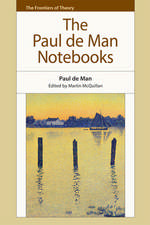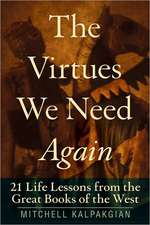Shakespeare and Literary Theory: Oxford Shakespeare Topics
Autor Jonathan Gil Harrisen Limba Engleză Hardback – 18 aug 2010
| Toate formatele și edițiile | Preț | Express |
|---|---|---|
| Paperback (1) | 171.03 lei 31-37 zile | |
| Oxford University Press – 19 aug 2010 | 171.03 lei 31-37 zile | |
| Hardback (1) | 116.79 lei 41-52 zile | |
| Oxford University Press – 18 aug 2010 | 116.79 lei 41-52 zile |
Din seria Oxford Shakespeare Topics
- 13%
 Preț: 113.24 lei
Preț: 113.24 lei - 7%
 Preț: 130.84 lei
Preț: 130.84 lei - 13%
 Preț: 149.50 lei
Preț: 149.50 lei - 13%
 Preț: 150.13 lei
Preț: 150.13 lei - 13%
 Preț: 113.87 lei
Preț: 113.87 lei - 7%
 Preț: 131.54 lei
Preț: 131.54 lei - 8%
 Preț: 148.28 lei
Preț: 148.28 lei - 14%
 Preț: 185.27 lei
Preț: 185.27 lei - 9%
 Preț: 175.91 lei
Preț: 175.91 lei - 14%
 Preț: 157.73 lei
Preț: 157.73 lei - 14%
 Preț: 157.32 lei
Preț: 157.32 lei - 8%
 Preț: 147.30 lei
Preț: 147.30 lei - 30%
 Preț: 502.68 lei
Preț: 502.68 lei - 8%
 Preț: 179.83 lei
Preț: 179.83 lei - 8%
 Preț: 179.05 lei
Preț: 179.05 lei - 14%
 Preț: 169.00 lei
Preț: 169.00 lei - 7%
 Preț: 149.66 lei
Preț: 149.66 lei - 7%
 Preț: 180.45 lei
Preț: 180.45 lei - 7%
 Preț: 180.23 lei
Preț: 180.23 lei - 8%
 Preț: 179.99 lei
Preț: 179.99 lei - 17%
 Preț: 596.23 lei
Preț: 596.23 lei - 7%
 Preț: 180.39 lei
Preț: 180.39 lei - 14%
 Preț: 167.14 lei
Preț: 167.14 lei -
 Preț: 116.93 lei
Preț: 116.93 lei - 14%
 Preț: 166.77 lei
Preț: 166.77 lei - 14%
 Preț: 177.40 lei
Preț: 177.40 lei -
 Preț: 225.62 lei
Preț: 225.62 lei - 7%
 Preț: 172.12 lei
Preț: 172.12 lei - 8%
 Preț: 179.35 lei
Preț: 179.35 lei - 8%
 Preț: 179.80 lei
Preț: 179.80 lei - 14%
 Preț: 158.63 lei
Preț: 158.63 lei - 10%
 Preț: 277.54 lei
Preț: 277.54 lei - 14%
 Preț: 166.05 lei
Preț: 166.05 lei - 9%
 Preț: 176.20 lei
Preț: 176.20 lei
Preț: 116.79 lei
Nou
Puncte Express: 175
Preț estimativ în valută:
22.35€ • 23.40$ • 18.49£
22.35€ • 23.40$ • 18.49£
Carte tipărită la comandă
Livrare economică 04-15 aprilie
Preluare comenzi: 021 569.72.76
Specificații
ISBN-13: 9780199573394
ISBN-10: 0199573395
Pagini: 240
Dimensiuni: 141 x 210 x 20 mm
Greutate: 0.39 kg
Editura: Oxford University Press
Colecția OUP Oxford
Seria Oxford Shakespeare Topics
Locul publicării:Oxford, United Kingdom
ISBN-10: 0199573395
Pagini: 240
Dimensiuni: 141 x 210 x 20 mm
Greutate: 0.39 kg
Editura: Oxford University Press
Colecția OUP Oxford
Seria Oxford Shakespeare Topics
Locul publicării:Oxford, United Kingdom
Notă biografică
Jonathan Gil Harris is Professor of English at George Washington University. He is the author of Foreign Bodies and the Body Politic: Discourses of Social Pathology in Early Modern England (Cambridge, 1998), Sick Economies: Drama, Mercantilism and Disease in Shakespeare's England (U Penn P, 2004), and Untimely Matter in the Time of Shakespeare (U Penn P 2008). He is also the editor of Staged Properties in Early Modern EnglishDrama (co-edited with Natasha Koarda, Cambridge 2002) and Thomas Dekker's The Shoemaker's Holiday (New Mermaids, 2008). Professor Harris serves as associate editor of Shakespeare Quarterly.
Recenzii
Gil Harris provides an essential, concise, reference work for Shakespearian libraries.
This book serves a contemporary need by providing accessible introductions to theory, while simultaneously whetting the appetite for more theoretically inflected discussions of Shakespeare
This book serves a contemporary need by providing accessible introductions to theory, while simultaneously whetting the appetite for more theoretically inflected discussions of Shakespeare











